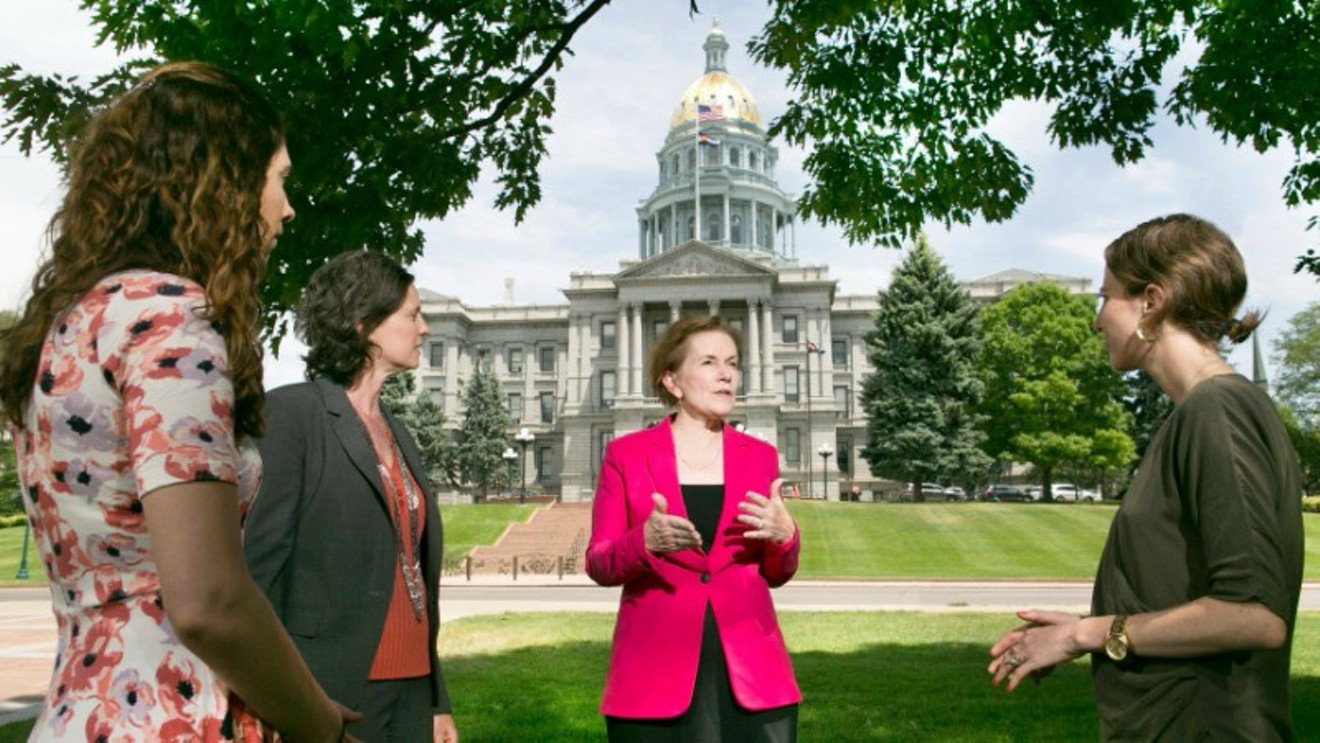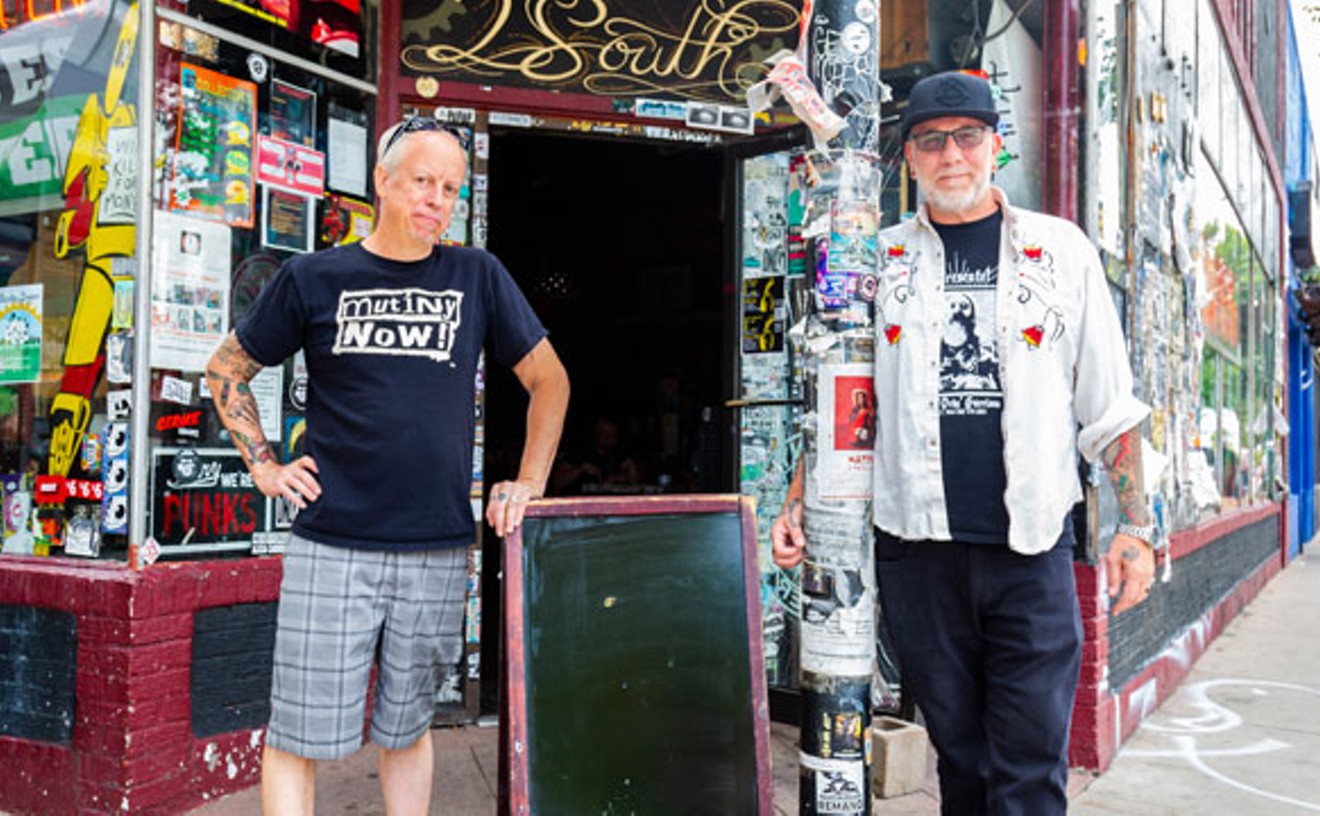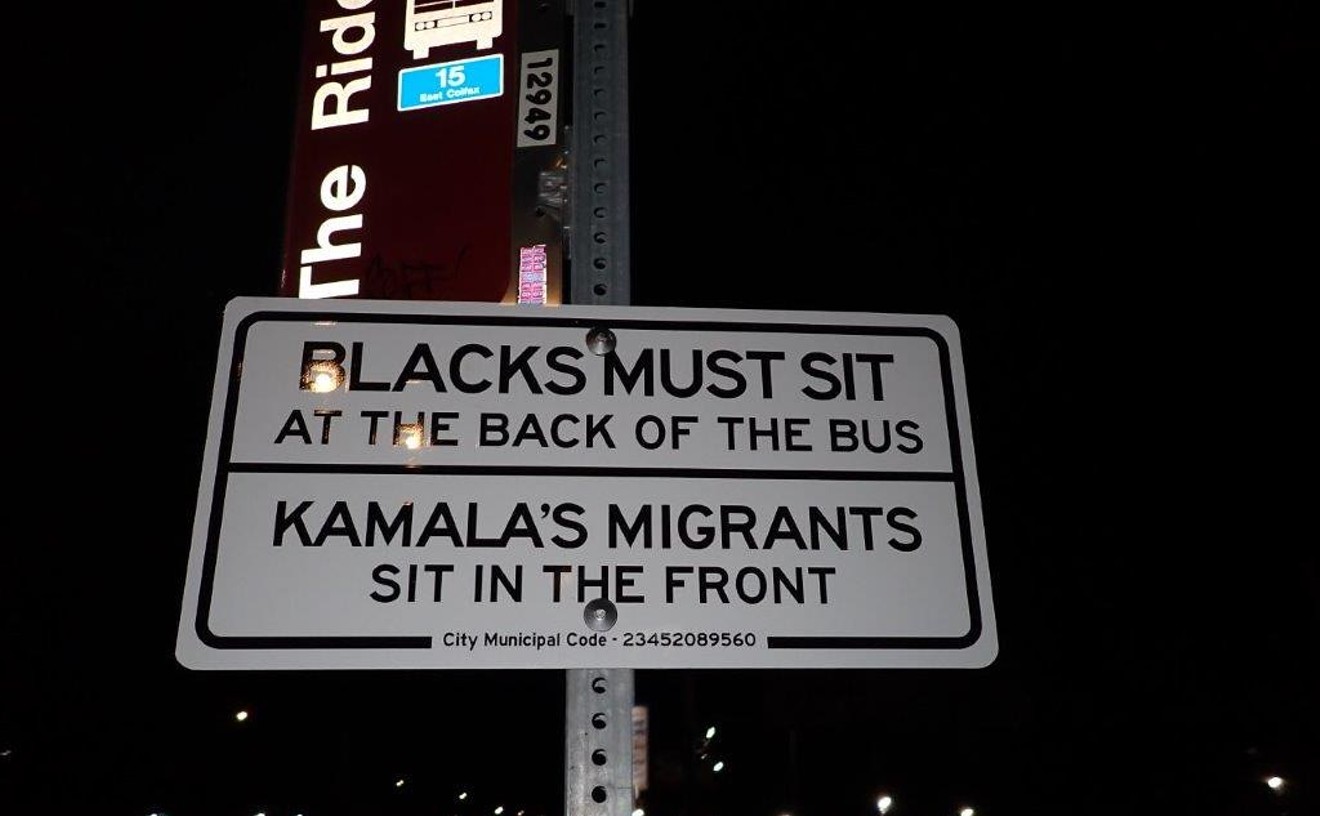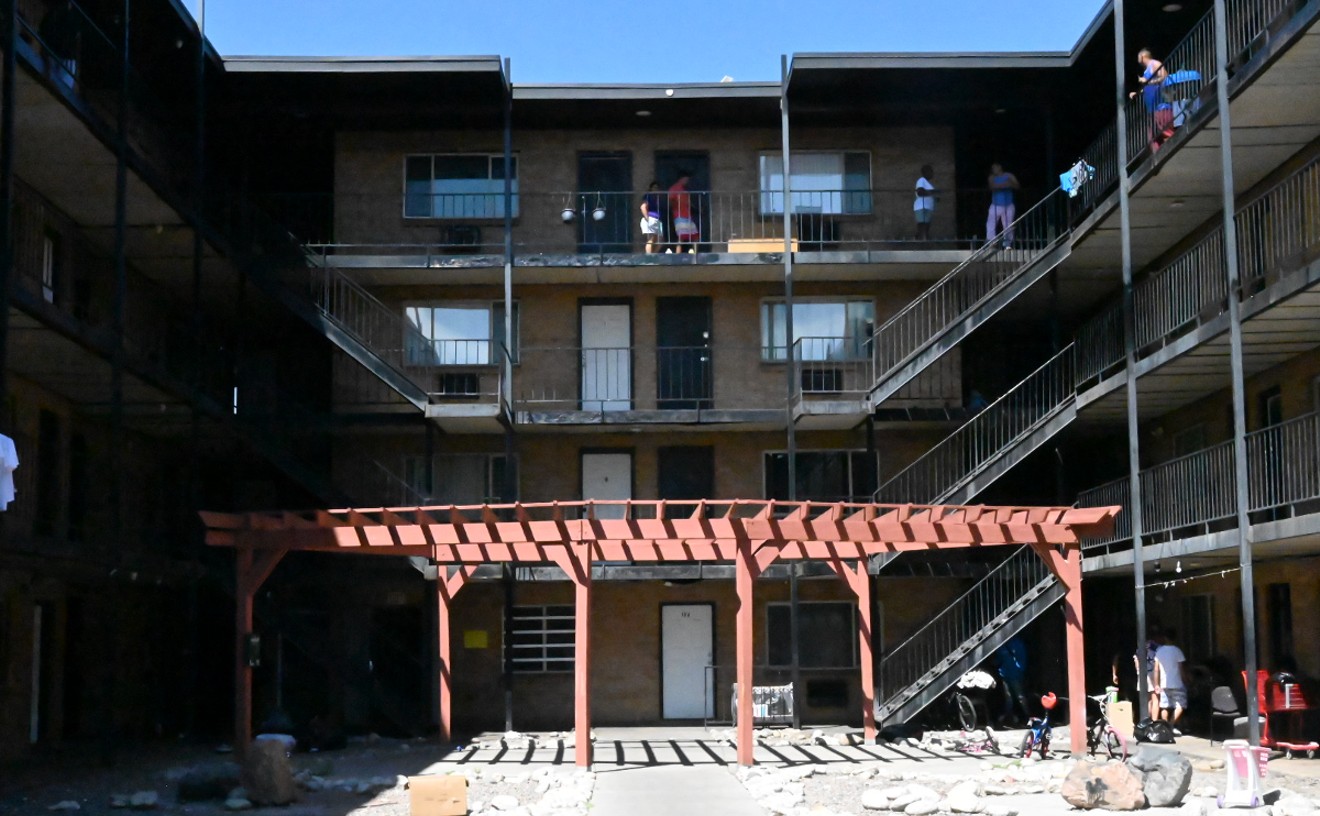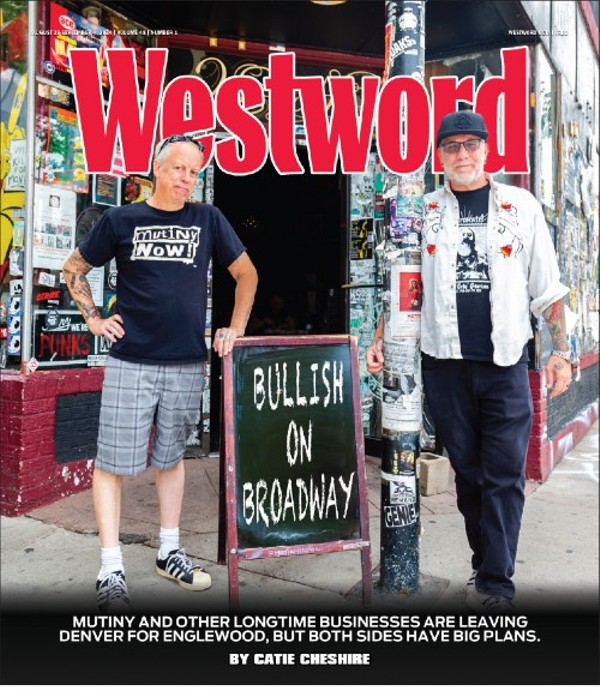Lieutenant Governor Donna Lynne says her experience running for governor of Colorado has convinced her of the need for campaign finance reform, and she hopes to spend time after she's out of office working toward fixing what she sees as a system that's seriously out of whack.
"The message that money was influencing the race too much resonated everywhere," Lynne says. "It resonated with individual voters and even some legislators. It was troubling to a lot of people."
Lynne came in fourth among four Democratic gubernatorial candidates on the ballot for the June 26 primary, and while the order of finish didn't correspond precisely to the amount of money each hopeful had to invest, it was close.
According to figures provided by the Colorado Secretary of State's Office, the campaign of the winner, Representative Jared Polis, spent $11,240,266.75 during the primary. According to the Colorado Independent, this cash was supplemented by $961,964.88 from political action committees, resulting in a sum of $12,202,231.63. Polis finished with 44.43 percent of the vote.

Lieutenant Governor Donna Lynne, second from right, was massively outspent by (L-R) fellow Democratic gubernatorial candidates Mike Johnston, Cary Kennedy and nominee Jared Polis.
Colorado Public Television
For Lynne, the math is easier. Her campaign raised $1,191,608, the July 5 update showed, and she got nothing from PACs. But she still managed to collect 7.28 percent of the vote, which means she spent the least per vote among the Dems — something about which she's proud, she acknowledges. (The most efficient gubernatorial candidate overall was ex-Parker mayor Greg Lopez, who chalked up 13.19 percent of the vote in the Republican primary despite coming up with only $45,198.63 in contributions and loans and also collecting zero from PACs.)
Prior to entering the 2018 governor's contest, Lynne hadn't tried for elective office, and she concedes that she received a real education along the way.
"If you have a job," she says, "you still have to raise the kind of money to not just campaign, but do all the campaign appearances. It's pretty darned hard to do all of that — and I not only have a job, but it's a job that sometimes requires you to work 24 hours a day, seven days a week."
She stresses that "the campaign appearances are important. You want voters to turn out, whether it's for debates or forums in different counties or for special-interest groups. I must have spoken to over 100 county Democratic forums or groups like Conservation Colorado or the realtors or the farm bureau. And there was so much interest in the campaign that the demands of time were pretty excessive."
Even so, she concedes, "it's easier when you're writing your own check. Fundraising on our side amounted to a good 70 percent of the time I spent on the campaign up to the last month, when it took second place in terms of my time. Then it was old-fashioned meeting people and talking to people one-on-one, which is a better way to campaign than doing TV ads or social media. But it's physically not possible to talk to hundreds of thousands of voters, so we had to ask, 'What makes people vote? Is it media exposure, learned media or paid media?' And I think we did a good job of trying to address all of them. But at the end of the day, the volume of ads from both the official side and the independent-expenditure side," meaning PACs, "defeated anything we could muster."
The reality of this situation left Lynne feeling frustrated — and she doesn't exempt the media from criticism. "For me, it's very much about a belief that voters should want to know more about the candidates than you can get in a thirty-second commercial, or what you get from some of the mailings, which tended to get a little more inflammatory or dirty, because they were mostly coming from the independent-expenditure side. I never called people names or made up stories, but that wasn't the case in some of the debates and some of the mailings and ads that I saw. And in the absence of the press or some organization that might say, 'Is this really his or her position?,' you can really say anything you want."
Granted, "some of the press did fact checks," she notes. "But most people aren't paying attention to the fact check when they're getting all these mailings and seeing all these ads. So maybe it's a combination of the press having a lack of staff or that they weren't as engaged in the issue. As I always say, some people like to cover the airplane crashes versus the airplane landings. But I would have hoped it would have been more about policy issues."
Behind the scenes, "we spent a lot of time on our side developing very in-depth policy positions," she explains. "We assembled people with very diverse interests and put together very thoughtful papers, trying to be very clear about the issues, because that's what a candidate is supposed to do. But in a campaign, you can say anything. You can say, 'I'm going to give you free this or free that,' without any sense of reality about what our voters in Colorado have done with respect to tax increases over the past 25 years. A candidate can appeal to voters by saying they're going to give them free something. So it's not only about the way campaigns are financed. Maybe it's also about how we get our information and how much time reporters can actually spend saying, 'Here are the real differences in education policy, on marijuana policy, on whatever.' That's as much of a concern as the amounts of money that are being spent."

Lieutenant Governor Donna Lynne behind the scenes with Mike Johnston and Jared Polis at a 9News debate in June.
Facebook
In the months that followed, the payouts skyrocketed. "We heard much lower numbers about what the congressman was going to spend," she says in reference to Polis. "We had heard he was going to put in $6 million or $8 million, not $11 million or $12 million. And Mike Johnston's independent-expenditure committee, its money was a little surprising. Those were big factors, and it's interesting that the Democrats spent more than the Republicans. The last numbers I saw, the overall spending was about $40 million, and the Democrats were spending between $24 million and $25 million."
To make matters more problematic, she continues, "the Democrats had four credible candidates who all had a track record in government in some capacity. Nobody was a novice, after all. But because all of those candidates had relationships with multiple individuals who might be funders, it created a dilemma for some people, because we were unable as Democrats to articulate the differences between candidates. I think there were real differences between the four of us, but sometimes funders weren't thinking about the differences. It came down to relationships, to slogans — and it was complicated by the fact that the congressman put in such big numbers. And that was just the primary. Would anybody be surprised if the two candidates spent another $20 million before the general election? Or even more?"
Hence Lynne's interest in campaign-finance reform — and she may have an unexpected ally in this mission. "In a couple of the debates, Congressman Polis was asked about the amount of money being spent, and he said that as governor, he wants us in the state to address it. And I'd love to be part of that process and share what I learned. Because something needs to be done."

